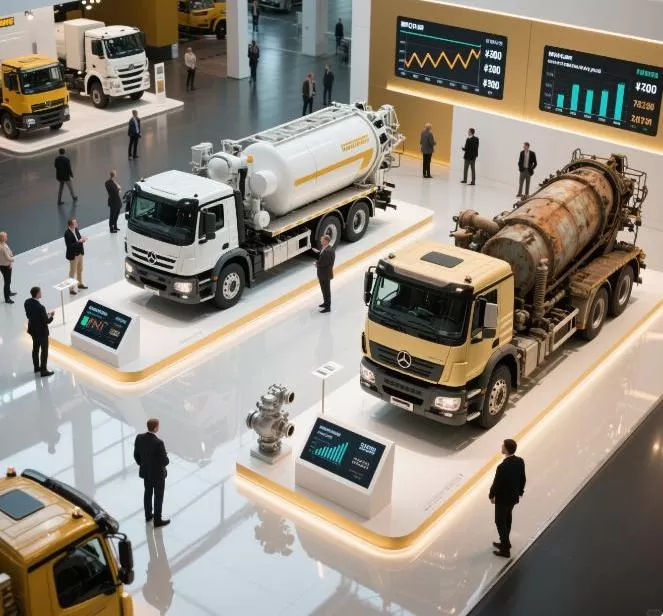Newer ≠ Better: 4 Key Checks Before You Buy a Pump Truck
Buying a pump truck might seem straightforward, but assumptions can lead to expensive choices. Many buyers naturally believe that a newer machine guarantees better quality or improved performance. In reality, that's not always true. With a wide variety of models available in the construction equipment market, selecting the right one takes more than just checking the manufacturing date.

Comprehensive Evaluation of Mechanical Performance and Technical Specifications
Before making any purchase, it's crucial to thoroughly assess the pump truck's capabilities. Check whether its maximum pumping volume and pressure align with the specific demands of your projects. The engine type, power output, and fuel efficiency are equally important, as these influence both performance and operating costs. Don't overlook the durability of key components like the pump body and delivery pipes, since high-quality materials ensure longevity and reliable operation. Additionally, evaluate the control systems and safety features to guarantee smooth and secure handling during operation.
Brand Reputation and After-Sales Support
A strong brand reputation can be a reliable indicator of product quality. Research the manufacturer's history and customer feedback to understand their standing in the industry. After-sales service is another vital consideration—find out how extensive the service network is, how easy it is to source spare parts, and whether the costs are reasonable. Prompt maintenance and expert technical assistance can significantly reduce downtime and protect your investment. Make sure the supplier's support infrastructure matches your operational requirements.

Usage History and Maintenance Records (Especially for Used Pump Trucks)
For buyers considering second-hand pump trucks, investigating the machine's usage history is indispensable. Examine the total working hours and the environments in which it was used, as harsh conditions can accelerate wear. Maintenance logs reveal how well the equipment was cared for and if any major components have been replaced. Be alert to any structural damages or accident histories that could compromise safety or performance.
Price and Overall Cost-Effectiveness
Pricing is a key factor, but it shouldn't be the sole consideration. Analyze the market price range for pump trucks with similar specifications. Weigh the machine's features, brand reliability, and condition against the asking price to determine if it offers good value. Also, consider the total cost of ownership, including shipping, routine maintenance, and operating expenses over the truck’s lifespan. Be cautious of deals that seem too good to be true, as they may come with hidden problems or subpar performance.

Matching the pump truck to your actual work environment is just as important as checking specifications. For example, long-boom trucks may be more efficient for high-rise projects, while compact units are ideal for tight urban sites. Considering terrain, site access, and project scale helps ensure the equipment you choose can perform where it's needed most.
Newer doesn't always mean better when selecting a pump truck. By carefully examining mechanical specifications, brand reputation, maintenance history, and pricing, you can avoid pitfalls and find equipment that truly fits your operational needs. Taking a measured, well-informed approach will lead to smarter purchases and better long-term results.

 EN
EN en
en FR
FR nl
nl ka
ka ru
ru fa
fa ar
ar az
az pl
pl uk
uk hy
hy tr
tr mk
mk de
de pt
pt el
el es
es it
it sq
sq ky
ky